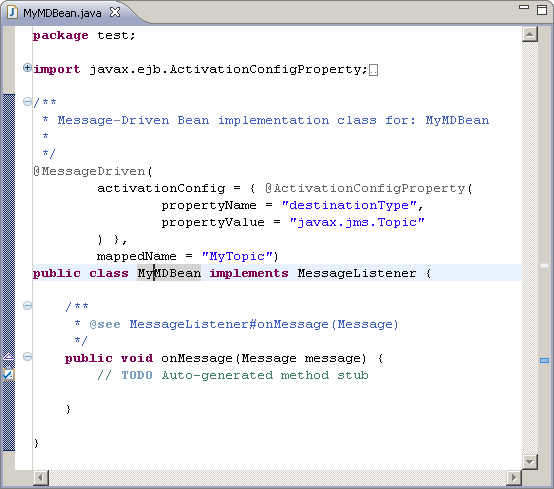Eclipse Web Tools Platform
3.0 | Back |
Java EE Tools
Servlet wizard
-
Several enhancements are introduced to the Servlet
wizard. The most noticeable are:
- Initialization parameters are now displayed in a table view. The user can easily see parameter's name, value and description.
- Servlet mappings are now validated. If a user enters an invalid servlet mapping, then an error message appears and the wizard cannot be finished.
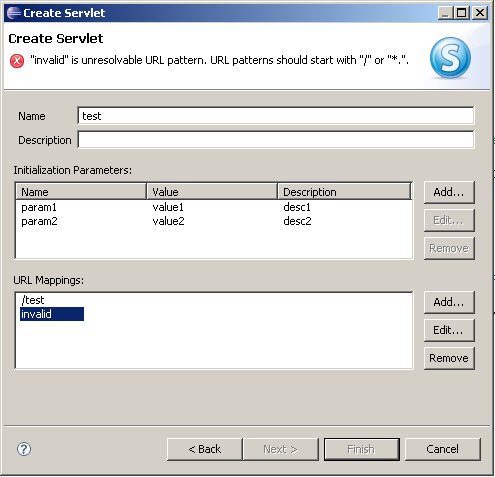
Servlet Filter wizard
-
A new wizard is introduced for generating Servlet
Filters stubs. Servlet Filters are web artifacts
described in chapter SRV.6 of the Servlet specification.
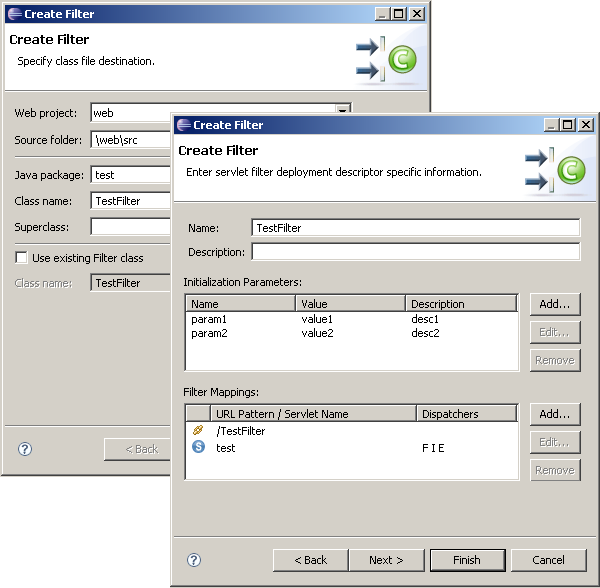
Application Lifecycle Listener wizard
-
A new wizard is introduced for generating Application
Lifecycle Listener stubs. Application Lifecycle
Listeners are web artifacts described in chapter SRV.10
of the Servlet specification.
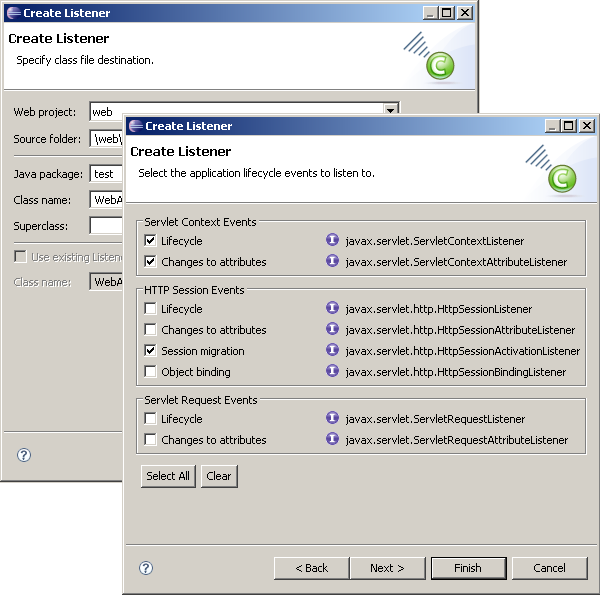
New context menu action group
-
There are now three wizards for creating web artifacts:
- Servlets
- Servlet Filters
- Application Lifecycle Listeners
They represents the web artifacts, which are based on Java classes. For easier access these wizards are now available in the context menu of the Dynamic Web Project as a separate action group.
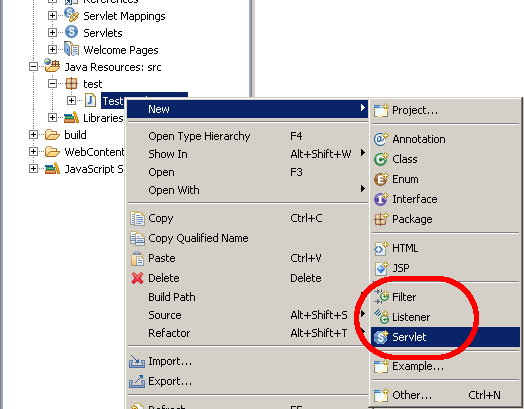
Rearrangement of the toolbar in the Java EE perspective
-
The old toolbar section of five buttons for invoking the
Java EE project wizards is now replaced by two pulldown
buttons:
- for invoking the Java EE project wizards (Web, EJB, EAR, etc.)
- for invoking the Java EE artifact wizards (Servlet, Session Bean, etc.)
Old arrangement:

New arrangement:

EAR 5.0 Bundled Libraries Support
-
In accordance with the Java EE 5 specification, a couple of
enhancements are introduced in the EAR 5.0
Java EE Module Dependencies
property page:
- new column with check-boxes appears in the modules table, allowing the user to choose if a certain bundled library should be packed in the EAR's library directory;
- new Change Library Directory button appears on the same page to allow the user to change easily the location of the library directory.

Appropriate message dialogs pop up in the Java EE Module Dependencies property page to warn and allow the user to automatically resolve conflicts between EAR packing and MANIFEST.MF class path dependencies.

Java EE Deployment Descriptor Nodes
-
Deployment Descriptor nodes for Java EE 5 projects are introduced.
This nodes are shown in the project explorer and apply for:
- EJB 3.0 project
- Web 2.5 project
- EAR 5.0 project
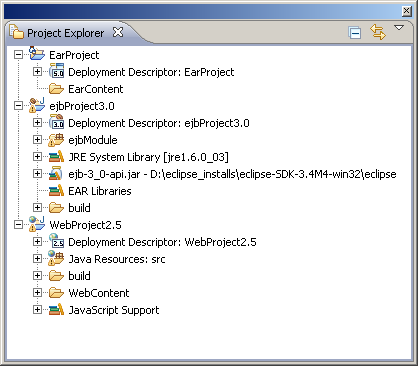
According to the Java EE specification artifacts can be described both in the deployment descriptor and with the use of java annotations in the source code. Current implementation will show you a merged view between the artifacts described with java annotations and those described in the deployment descriptor.
The result of the following annotated bean:
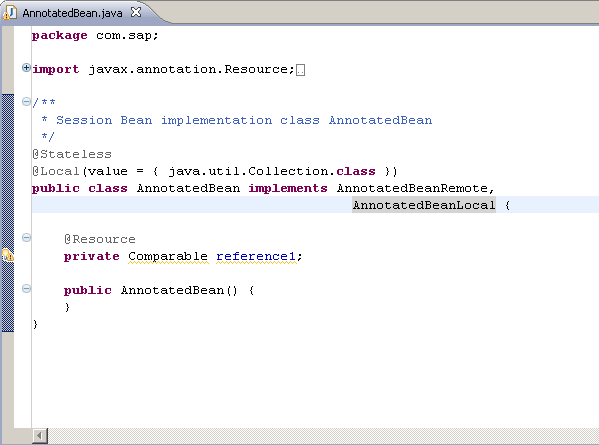
will be:
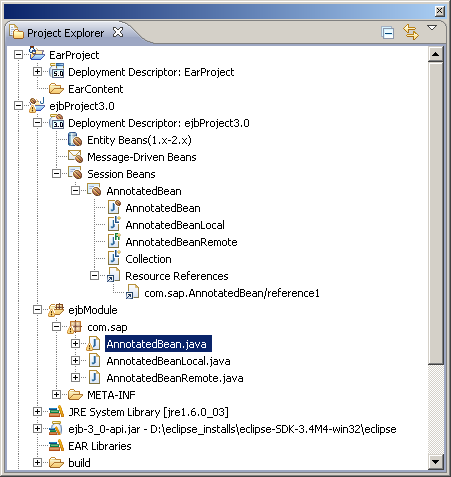
Merging artifacts is also done for Web 2.5 projects. The result from merging the following Servlet class:
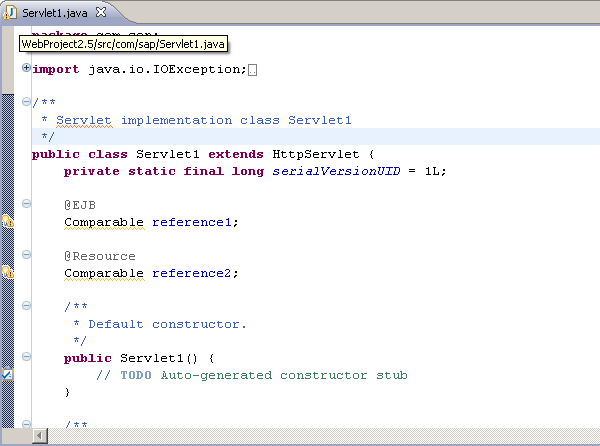
will result in the following deployment descriptor node:
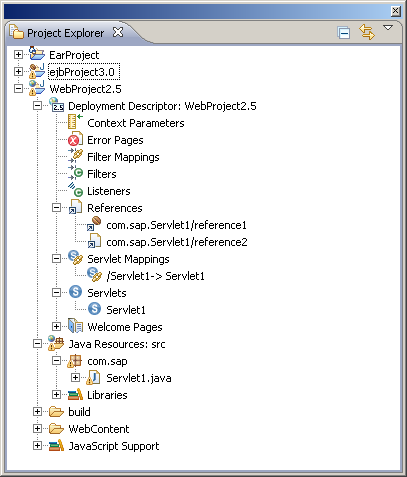
EJB Tools
EJB 3.0 Session Bean wizard
-
A new wizard is introduced for generating EJB 3.0 Session
Bean classes and interfaces. The following features can be
highlighted:
- Metadata is injected as Java annotations in the source code instead of described in the ejb-jar.xml deployment descriptor.
- Optionally, Local and Remote Business interfaces can be generated.
- Optionally, Home and Component interfaces can be generated for backward compatibility with the EJB 2.x specification.
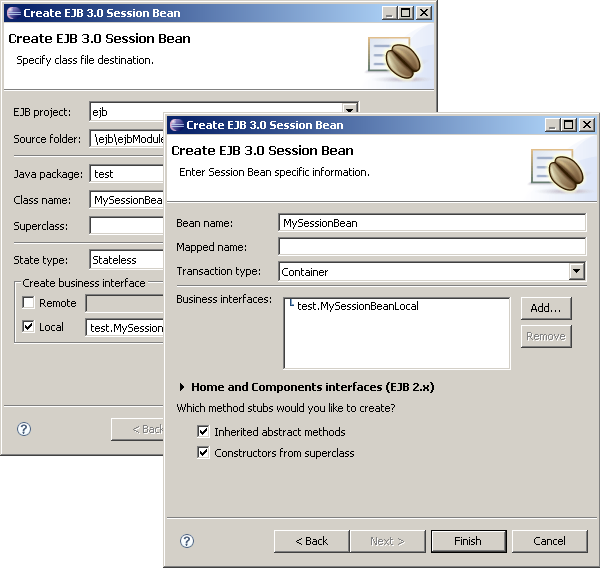
EJB 3.0 Message-Driven Bean wizard
-
A new wizard is introduced for generating EJB 3.0 Message-Driven
Bean classes and interfaces.
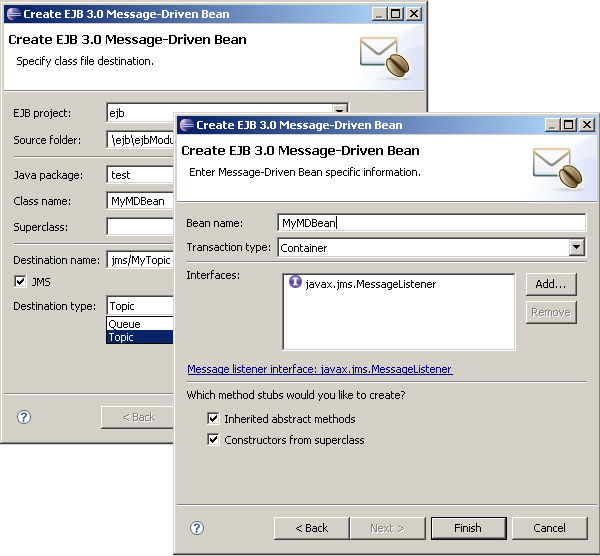
The metadata is injected as Java annotations in the source code instead of described in the ejb-jar.xml deployment descriptor.
